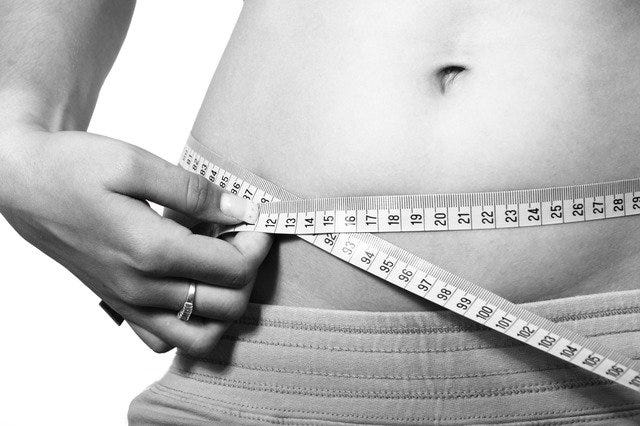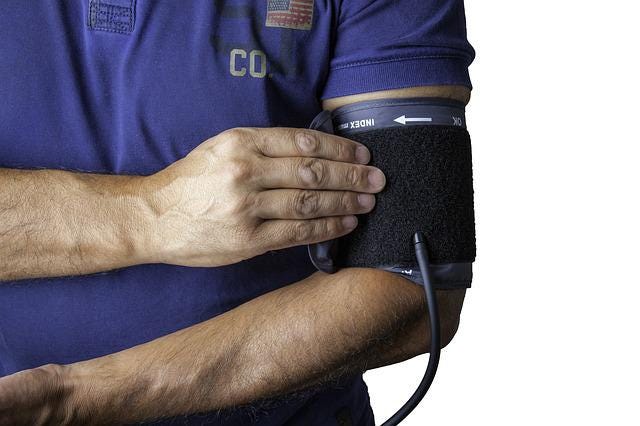[ad_1]

Intermittent fasting can be a good way to jump-start your weight loss but not everyone can or should do it. If you’re considering intermittent fasting, here’s everything you need to know in order to make the best decision for your unique situation. Helps intermittent fasting to get rid of stubborn belly fat? Is it safe? How much weight can you lose with intermittent fasting? And how do you do it? We’ve got answers to all of these questions and more below!
Research has shown that intermittent fasting may not be a more effective way to lose weight than a traditional calorie-restricted diet, but it can work better for people who have trouble restricting their caloric intake. Not only does intermittent fasting have many benefits in terms of improved physical health, but it also might help mental health.

Intermittent fasting might be preferable to calorie-restricted diets by individuals who are overly busy and don’t have the time to plan their meals. People who simply want their weight loss to be as easy as possible may favor intermittent fasting over diets too.
As an additional bonus, you can use fasting in conjunction with other diets, to lose even more weight in a healthy way.
Here are some of the other possible benefits that accompany intermittent fasting:
May prevent brain related disease — There are indications from studies that show that intermittent fasting may prevent neurological disorders from developing. Despite the current lack of experimental data to back this up, intermittent fasting may theoretically offer benefits for neurodevelopmental and mood disorders.
Cardiovascular benefits — Although more research is needed to clarify how fasting exactly helps with obesity, hypertension, dyslipidemia, and diabetes, the results of the studies show promise in this regard. In addition, the research done has shown that intermittent fasting is associated with a better outcome following a cardiac event.

Reduces inflammation — 50 fasting participants during Ramadan were analyzed and it was shown that they have lower pro-inflammatory markers than usual.
Researchers have suggested that other benefits such as a better night’s sleep and decreased risk of cancer might also be associated with fasting, but this again, requires more study to determine.
So, works intermittent fasting to get rid of stubborn belly fat? — While the benefits may show that does, there are multiple other factors that need consideration. Keep reading below, to find out if fasting might be a viable weight loss solution for you.
Intermittent fasting is an increasingly popular method of weight loss, but not only advantages come with it. Firstly, fasting does not have a greater impact on weight loss than a diet that regulates calories. Secondly, there is a large proportion of people who stop fasting or overeat on non-fasting days due to the food deprivation, with the additional risk of eating more unhealthy foods than usual on those days.

Another risk is to develop or contribute to eating disorders. One can set out to lose weight and achieve success with fasting, but it may become tempting to abstain from food too much. For people who have a history of eating disorders, the chances of a relapse can be high. Alternately, for others, fasting might lead to unhealthy binge-eating and weight gain, instead of weight loss.
Depending on the type of intermittent fasting and your fasting schedule, there is a possibility of experiencing negative side effects that make you feel unwell, such as headaches, dehydration, digestive problems, mood changes, or low energy.
Talking to your doctor before fasting is always a good idea to make sure you don’t end up jeopardizing your health. While intermittent fasting is generally safe for most — under some circumstances it is advisable to not try fasting at all. These are if you:
- are under 18 years of age
- are pregnant or breastfeeding
- have diabetes or other chronical diseases
- take medication
- have a history of eating disorders
- are an athlete or train intensively
- are underweight
There are several types of intermittent fasting plans that all have differents benefits and drawbacks. In comparison to other diets, fasting is not about what you eat but when you eat. The consumption of water, coffee, and other drinks without calories is allowed and fasting can be used in conjunction with other diets to improve their effectiveness, as long as it still allows to get needed nutrients. For the best benefits, make sure to exercise while fasting intermittently.

Before we look at some of the popular fasting methods, it’s important to know that there really is no one right way. It all depends on you, your lifestyle, and your personal expectations. What is best for you is most likely a schedule that you can stick to and feel most comfortable with.
Here are a few of the more popular schedules:
Alternate day fasting
This is a simple routine, but tough to keep. For this you would eat every other day. Different variations exist wherein either the calories consumed on fasting days are around zero or just a few hundred (typically 500).
Lack of eating for 24 hours can lead to unpleasant side effects and potentially even put your health at risk, the limited calorie variant may there be more sustainable and easier to stay within.
In study, people who follow this schedule method instead of calorie restrictions do not typically lose more weight. For some people, though, it is easier to maintain than a regular diet.
5:2 diet
For this schedule you eat normally (not overly binging on unhealthy foods) five days a week and reduce the calorie intake to around 500 on the other two. Between the two fasting days should be at least one non-fasting day.
With some similarities to the alternate day fasting schedule, weight loss is not greater than that with a standard calorie-restricted diet, but is easier to stick to for some.
There are no guidelines in regards to what can be eaten during this diet. However, the best choice would be a diet that is healthy and good for weight loss such as one that includes high-fibre and protein.

Time restriction schedule
On this schedule, one does not eat for a set number of hours but eats healthy during the remaining hours. There are many methods, so it’s recommended that you find one that works for you and then modify it accordingly.
Other popular schedules include the 14/10 or 12/12. Picking the right time for your fasting schedule is critical with this method. Of course this is dependant on your availability to eat during the fasting period, therefore pick a time that is best for you. Many people for example start fasting during the evening and through the night, so they will skip only either breakfast or dinner.
Not only is it more manageable for most, but it is also more flexible in terms of timeframe as compared to other approaches and is therefore more successful for those who find it hard to simply refrain from eating for a full day.
The Warrior Diet
This method differs most from the other fasting methods we discussed. With the Warrior Diet you are allowed to eat small amounts of fruits and vegetables during the day and then eat as much as you want during a four hour window at night.
With a higher potential risk of developing eating disorders and experiencing unpleasant side effects, this rather extreme method isn’t as viable for many people as other intermittent fasting methods.
However the Warrior Diet might be good for those who have fewer problems restricting themselves, as it is basically a less restrictive way of intermittent fasting.
How can you be sure to stick with your fasting plan? How can you ensure that you’re actually losing weight and aren’t doing something wrong? Here are a few tips to make your fasting as beneficial as possible, to allow you to lose weight and become healthier, regardless of the schedule you have chosen:
Drink enough water
Drinking a sufficient amount of water helps you to stay hydrated and beeing hungry less often. Often the body confuses hunger for thirst.

Don’t overdo it
To lose weight, your goal should always be to do so in a healthy way. When you are uncertain about what dieting schedule to use, start with a 12/12 plan. If you feel ready to try a more challenging schedule, you can always switch to it. It’s better to start slow and build your way up than to jump in and quit shortly thereafter.
If you’re feeling ill and that’s continued for some time, then it may be in your best interest to put a hold on your fasting. It may be that fasting just isn’t the right fit for you and more traditional diets may work better.
Plan your fasting days
During fasting days, it can be difficult not to think about food. Therefore, making as many plans as possible for those days is a good idea. Do your best to create diversions during your fasting days such as tackling paperwork or housework to stay focused.
Don’t overeat
When your fasting period is over, it can be tempting to indulge in all the tasty foods you have missed out on. This might break the whole point of the time you spent fasting because when you overeat too much, you might gain weight rather than lose weight in the end.

You can avoid this by planning and preparing your meals ahead of time. When you’ve prepared a healthy, nutritious meal ahead of time, it’s less likely that you binge on unhealthy foods or for example order a pizza.
Another good tip is to shop according to your fasting time.Don’t buy any unhealthy foods or snacks right after your fasting period ends. If you are tempted by something unhealthy, such as chips or ice cream, try to buy exactly one portion/package after your non-fasting time.
Avoid strenuous workouts while you’re fasting
Exercising on an empty stomach will be more tiring and can make you feel unwell, so try to find a workout plan that coincides with the non-fasting period.

Try to eat healthy during your non-fasting time
Whole foods rich in vitamins, protein and fibre are best. That doesn’t mean you can’t enjoy an unhealthy treat from time to time, but be aware about what you eat.
The answer to the question “Helps intermittent fasting to get rid of stubborn belly fat?” is ultimately yes and no. Intermittent fasting may lead to health benefits and weight loss, but it may not be for everyone. Some people don’t feel well when they go for hours without eating. It is also not advisable for people with conditions like diabetes and heart disease.
But if you are more inclined to intermittent fasting rather than regular dieting, there are definite benefits if it’s done in a safe and mindful manner. You just have to try it out to see if it’s for you.
[ad_2]
Source link




